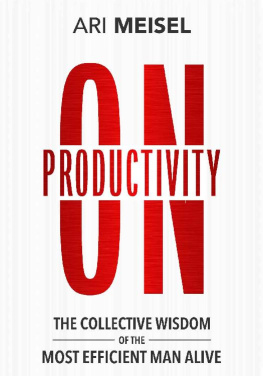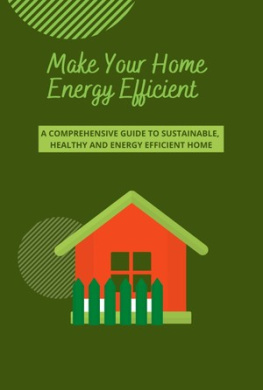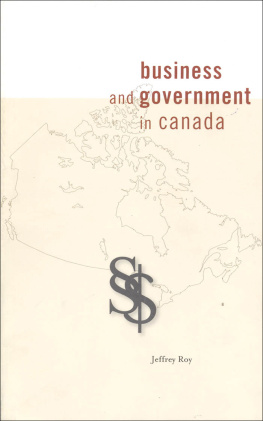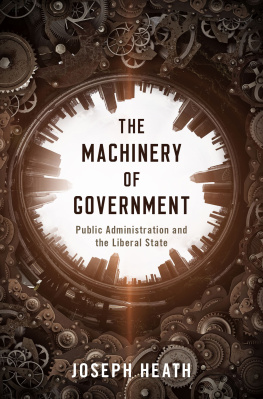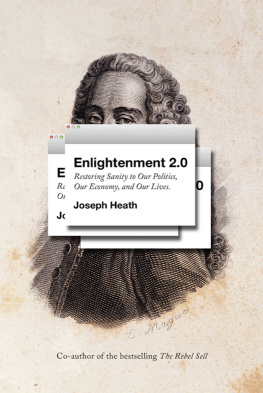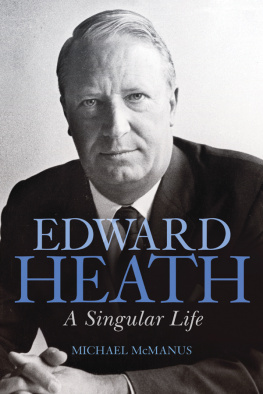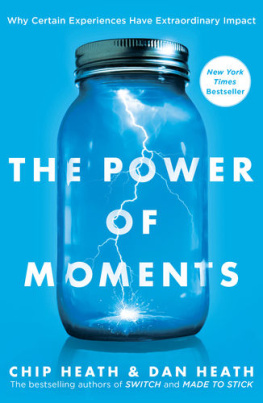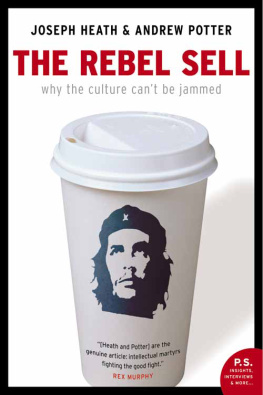PENGUIN BOOKS
THE EFFICIENT SOCIETY
Joseph Heath holds a Canada Research Chair in Ethics and Political Economy at the Universit de Montral. He taught previously at the University of Toronto. He holds a Ph.D. from Northwestern University, and is also the author of Communicative Action and Rational Choice.
Why Canada Is
As Close to Utopia As It Gets
The Efficient society
Joseph Heath

PENGUIN BOOKS
Published by the Penguin Group
Penguin Books Canada Ltd, 10 Alcorn Avenue, Toronto, Ontario, Canada m4v 3b2
Penguin Books Ltd, 80 Strand, London wc2r 0rl, England
Penguin Putnam Inc., 375 Hudson Street, New York, New York 10014, U.S.A.
Penguin Books Australia Ltd, 250 Camberwell Road, Camberwell, Victoria 3124, Australia
Penguin Books (NZ) Ltd, cnr Rosedale and Airborne Roads, Albany, Auckland 1310,
New Zealand
Penguin Books Ltd, Registered Offices: Harmondsworth, Middlesex, England
First published in Viking by Penguin Books Canada Limited, 2001
Published in Penguin Books, 2002
1 3 5 7 9 10 8 6 4 2
Copyright Joseph Heath, 2001
All rights reserved.
Grateful acknowledgement is made for permission to reprint excerpts from the following copyrighted works:
Better Living: In Pursuit of Happiness from Plato to Prozac by Mark Kingwell, copyright 1998 Mark Kingwell. Reprinted by permission of Penguin Books Canada Ltd.
The One Best Way: Frederick Winslow Taylor by Robert Kanigel, copyright 1997 by Robert Kanigel. Used by permission of Viking Penguin, a division of Penguin Putnam Inc.
Manufactured in Canada.
Text design and typesetting by Ruthe Swern
NATIONAL LIBRARY OF CANADA CATALOGUING IN PUBLICATION DATA
Heath, Joseph, 1967
The efficient society : why Canada is as close to utopia as it gets
Includes index.
isbn 0-14-029248-9
1. CanadaSocial conditions1991 2. CanadaPolitics and government1993
3. CanadaEconomic conditions1991
I. Title.
HN103.5.H42 2002 971.0648 C2002-900971-5
Except in the United States of America, this book is sold subject to the condition that it shall not, by way of trade or otherwise, be lent, re-sold, hired out, or otherwise circulated without the publishers prior consent in any form of binding or cover other than that in which it is published and without a similar condition including this condition being imposed on the subsequent purchaser.
Visit Penguin Canadas website at www.penguin.ca
for
Alice
Acknowledgements
First and foremost, I would like to thank my colleague at the University of Toronto, Mark Kingwell, along with Jackie Kaiser of Penguin Canada. Without their advice, encouragement, and assistance, this book would never have been written, much less published. Andrew Potter provided invaluable research assistance, along with very helpful comments on the manuscript. I would also like to thank my friends and colleagues who read the work at various stages of development: Peter Nixon, Marian MacNair, Donald Ainslie, Kevin Olson, Joel Anderson, and Terrence Heath. Special thanks to Jim Preston and Troy Young for helping me to refine these ideas over the course of countless conversations. I would also like acknowledge the contribution of two former teachers of mine: Jrgen Habermas and James Johnson. They may not recognize it, but their ideas continue to provide an important inspiration for my work. Thanks also to David Kilgour for his judicious editing of the manuscript and Mary Adachi for copy-editing.
Introduction
The quality of life enjoyed by Canadians is currently one of the highest in the world. Year after year, the United Nations Human Development Index ranks Canada among the very best countries on earth in which to live. In fact, for seven years in a row, Canada was ranked number one (until the year 2001, when we dropped down to number two). But how have we managed to achieve such an extraordinary level of human development? Why do we rank so high?
Is it because were rich? No. Being rich helps, but there are lots of countries where people are richer than we are. In terms of dollars-and-cents income, the average American is significantly richer than the average Canadian. And yet they enjoy a lower quality of life.
Is it because we have so many natural resources? No. We certainly do have an abundance of resources, but there are other countries in the world that have even more. Russia comes to mind. And the Russian quality of life is nothing to envy.
Is it because we live in a just society? Hardly. Canada has very good government, but it also suffers from considerable inequality in the distribution of income. Income inequality is greater in Canada than in most European nations.
So why is life in canada so good? the answer is actually quite simple. its because canada is an efficient society, perhaps the most efficient on earth. we run a tight ship. we get maximum results while minimizing effort and waste.
Simple question, simple answer. Unfortunately, its an answer that most people will have a hard time believing. Canada doesnt feel very efficient. It feels kind of sluggish, laid-back. The Japanese seem to organize things much better than we do, the Americans certainly outgun us when it comes to business, and the Germanslets not even get started on the subject of German efficiency.
But much of this is an illusion. The American economy seems efficient, but fundamentally the United States is not a land dedicated to the pursuit of efficiency. When given a choice between liberty and efficiency, Americans consistently choose liberty, even when it makes life more difficult for them.
Reasonable people all agree, for example, that the most efficient way to provide health care is through the public sector. In 1995, the Canadian government spent approximately 6.9 per cent of the Canadian GDP (gross domestic product) on health care. With that money, it provided health services to all Canadians. In the same year, the American government spent 6.6 per cent of the American GDP on health care. With that money, it provided health services to less than 30 per cent of Americans. And yet in spite of lower total health care spending, Canadians are, on average, healthier than Americans. Part of the reason may be that the Canadian health care system actually delivers a greater quantity of physician services per capita than the American.
One of the major reasons that Americans get so little bang for the buck is that private health insurance generates massive overhead costs. Approximately half of the difference in health care spending between Canada and the United States can be attributed to the giant bureaucracy that is required to keep track of and process all the different claims in the United States. As a result, every year Americans throw away more than 2 per cent of their GDP on useless health care bureaucracy. An estimated 1.4 million Americans are employed doing completely unnecessary administrative jobs in the health care sector. These people could be doing something a lot more useful.
Why do Americans tolerate this sort of inefficiency? Mainly it is because they feel that having government deliver health care would infringe on their liberties by denying them the freedom to purchase whatever type of health services they want. So they are willing to make the sacrifice. Canadians, on the other hand, are more pragmatic. If the government can deliver health insurance more efficiently than the private sector, we are happy to let government do it. This is why even the political right in Canada presents itself as committed to defending medicare.
Next page


